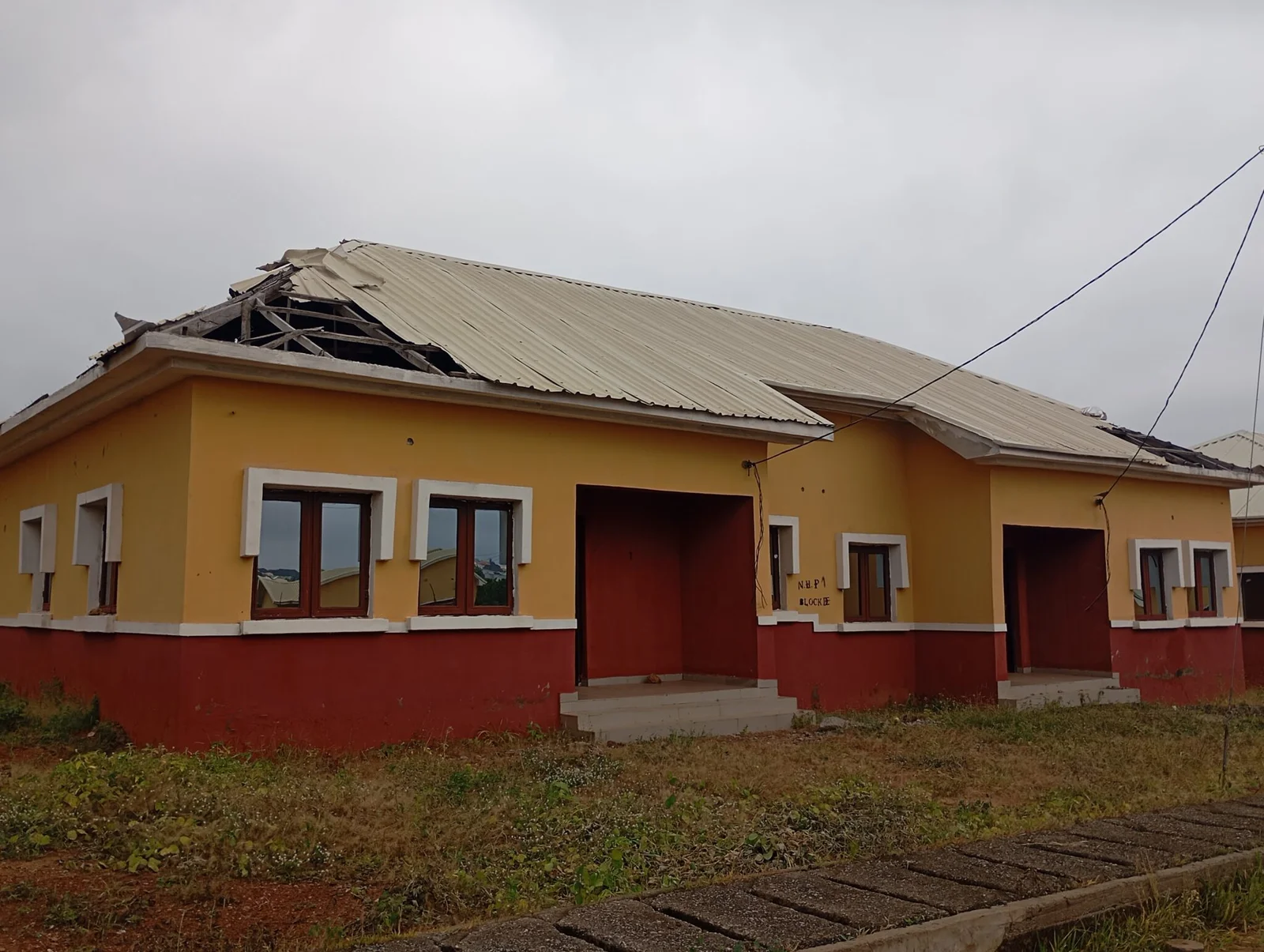By Usman Aliyu and Bushrah Yusuf-Badmus
Unarguably, Nigeria is facing a worsening housing crisis.
Access to affordable housing remains a major challenge for low- and middle-income earners, hampered by high construction costs, inadequate financing, weak infrastructure, and limited government delivery.
According to the Federal Mortgage Bank of Nigeria (FMBN), the deficit is currently estimated at more than 28 million units.
To bridge this gap, the Federal Government unveiled the National Housing Programme (NHP) in 2016 under former President Muhammadu Buhari, aiming to provide affordable homes for Nigerians across 34 states.
The initiative, now rebranded as the Renewed Hope Housing Programme under President Bola Tinubu, targets Nigerians aged 21 and above in paid employment, who contribute 2.5 per cent of their monthly salary to the National Housing Fund managed by the FMBN.
Yet, in Ilorin, Kwara, two of these housing projects – one located in Ali-Ara, off Asa Dam Road, and another at Ogbondoroko in Asa Local Government Area – stand as symbols of unfulfilled promises.
One has been completed but left unallocated; the other remains partially finished years after groundbreaking.
The estate at Ali-Ara, inaugurated with fanfare in December 2022, comprises 76 housing units under Phase One of the NHP. The facilities include roads, drainage, electricity connections, and water supply.

The project features 48 units of two-bedroom bungalows, 20 three-bedroom bungalows, four one-bedroom units, and four three-bedroom units built using stabilised earth technology.
During the inauguration, the then Minister of Works and Housing, Babatunde Fashola, disclosed that building contracts were awarded in November 2016 at a cost of N728.49 million, while infrastructure contracts followed in May 2017 at N619.26 million.
The breakdown included N446.1 million for roads and drains, N85.1 million for electricity, and N87.9 million for boreholes.

In spite of these investments, none of the housing units has been occupied nearly three years later, a situation that has turned optimism into concern among nearby residents, who now fear the empty buildings could become a hideout for criminals.
Dr Abdulazeez Olatunji, Chairman of the New Era Community, has lived in the Ali-Ara area for over a decade.
He recalls the excitement that greeted the project’s construction.
“We were delighted when the project started; it brought good roads and drainage, and we thought facilities like markets and health centres would follow.
But today, the houses stand empty; that’s the real abandonment,” he lamented.
While the estate has not yet become a serious crime spot, Olatunji expressed fears that its isolation and lack of habitation make it a potential security threat.
“The guards securing the place sometimes collude with others to steal livestock; we have had reports of goats and rams being kept inside the empty houses before being moved out at night,” he said.

The community chairman urged the Federal Ministry of Housing and Urban Development to address all issues delaying the allocation of the houses before the infrastructure deteriorates further.
Sharing a similar sentiment, a military officer residing nearby, who pleaded anonymity, said he donated part of his land to make access roads possible, hoping the estate would bring development.
“I gave part of my land for the road, believing the project would improve the area.
“But since completion, nothing has changed; some boreholes have been vandalised, and only two of six industrial boreholes are working; the rest were stripped of their pumping machines,” he said.
He added that while the government provided security guards, vandalism and theft of electrical components persist due to inactivity.

For Mrs Tawakalitu Mustapha, who runs a small shop beside the estate, the empty houses have dashed her hopes of increased patronage.
“We thought business would boom once people moved in, but that has not happened. Some say they’ve been allocated the houses but can’t move in because facilities are already spoiling,” she said.
At Ogbondoroko, Phase 2 and 3 of the NHP project tell a similar story, though construction is yet to be completed.

Mrs Faith Ilesanmi, a resident of eight years, believes the estate’s poor access road and distance from the city deter potential subscribers.
“The location is far from town and the road is terrible; even if completed, it will be difficult for civil servants to live here,” she explained.

Another resident, Mr Abdulgafar Abdulsalam, described the project as “a white elephant venture,” arguing that most civil servants, which is the programme’s target group, cannot afford the houses due to existing loan deductions from their salaries.
“If I had the money they’re asking for, I would rather buy land and build my own house.
“The purpose of this programme to help civil servants has been defeated,” he said.
Housing experts have long warned that Nigeria needs to build at least 700,000 units annually to close its housing deficit, yet fewer than 100,000 units are produced each year across public and private sectors combined.
Stakeholders aver that abandoned or unallocated estates like those in Ilorin further worsen this deficit, especially when thousands of government workers continue to pay high rents in urban centres.
The Federal Ministry of Housing and Urban Development maintains that allocation of completed NHP estates is ongoing nationwide.
However, residents and civil servants in Kwara say they have received no official communication or allocation notice since the 2022 commissioning.
Mr Badamasi Haiba, Director, Press and Public Relations in the Ministry of Housing and Urban Development, through documents shared, said the government had allocated the completed units.
He, however, could not provide information on the reasons contractors are yet to go back to site to complete others.
In their views, urban planners warn that abandoned estates can quickly deteriorate and attract criminal activities.
A report by the UN-Habitat highlights that unoccupied housing developments often lead to infrastructure decay, illegal occupation, and increased insecurity.
Olatunji and others in the New Era Community call on the Federal Government to act swiftly.
“These houses should not rot away while people struggle for accommodation. If the allocation process is delayed by bureaucracy, the government should at least put them to temporary public use; for example, as training centres, clinics, or low-cost rentals,” he urged.
Until then, observers say the estate stands as a reminder of Nigeria’s recurring pattern–a nation building homes but not housing people.(NANFeatures)
***If used, please credit the writer and the News Agency of Nigeria.












